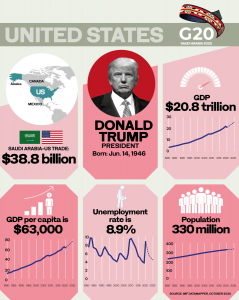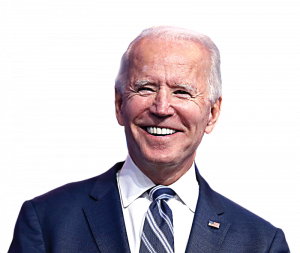
- ARAB NEWS
- 18 Jul 2025

Arab News
LONDON: The incoming Biden administration in Washington is set to herald a new chapter of trade ties between the US and the Gulf — as well as with the region’s largest economy.
In recent days, many analysts have speculated over the differences between how a Biden and Trump-led US will interact with the oil-exporting Gulf states and Saudi Arabia, the dominant regional economy.
Yet while different administrations have had different policy priorities in the region, the overall relationship has remained strong over the decades. Generations of young Saudis have traveled to universities across the US, while generations of Americans have comes to work in the Kingdom — many of them employed in the key oil and petrochemical sectors.
“Politically, the two sides see eye-to-eye on most regional and international issues and that is expected to continue,” wrote Abdel Aziz Aluwaisheg, GCC assistant secretary-general for political affairs and negotiation.

“Energy cooperation is now more productive and equal, as the two sides sit on the same side of the table as major producers of oil and gas.”
Indeed, both the Gulf and the US, an increasingly important supplier of shale oil to the world, have a vested and mutual interest in ensuring oil market stability. This will become especially important in the year ahead as demand begins to recover with an expected pick-up in economic activity likely to follow in the wake of new vaccines.
Beyond oil, the US has strengthened its trade position in the Arab world in recent years with data analyzed by the National US-Arab Chamber of Commerce (NUSACC), showing that exports of US goods to the Middle East and North Africa (MENA) rose in 2019 to $62.64 billion, up about 4 percent on the previous year.
It represented the first time since 2014 that US goods sales to the MENA region have rebounded.
The UAE and Saudi Arabia remain the biggest destinations for US goods in the Arab world, according to US trade data. The pair accounted for more than half of total US goods exported to the MENA region last year.
“After several years of declining sales to the MENA region, American goods exports rebounded in 2019,” said David Hamod, NUSACC’s president in a statement earlier this year. “This is great news for American manufacturers, farmers, ranchers, and other innovators, whose order books have suffered in major markets around the world. The Arab world continues to be a strong destination for US exporters.”
The incoming Biden administration follows a Trump presidency heavily defined by a trade war with China that has created collateral damage around the globe and including the Arab world.
The hope of many states in the region that stand to lose from continuing tensions between these two great powers is that there will be of some kind of rapprochement that repairs the relationship between Beijing and Washington.
But there has been no indication to date that there will be a dramatic change in the policy of aggressively addressing the trade gap with China.
“I think President Biden is going to be tough on China — but maybe a different kind of tough,” Stephen Lamar, CEO of the American Apparel & Footwear Association, said earlier this week.
President-elect Joe Biden has said that he will work with US allies to set the rules in global trade.
This may represent one of the more significant differences in style between both administrations.

While President Trump’s trade policy was unilateral in its approach to China and to a lesser extent with the EU, Biden wants to pursue a multilateral approach in aligning like-minded allies to counter the rising influence of China on the global stage.
This strategy may have significant implications for how US trade with the region will be defined in the years ahead.
One of Trump’s first big announcements soon after entering office was to withdraw from the Trans-Pacific Partnership (TPP) that had originally been floated by the Obama administration.
Less than four years later, 15 Asia-Pacific countries, including China, have just signed up to the Regional Comprehensive Economic Partnership (RCEP) — effectively the world’s largest trade deal.
Encompassing almost a third of the people on the planet, the wide-ranging agreement will demand a major response from the US.
“We make up 25 percent of the world’s trading capacity, of the economy of the world. We need to be aligned with the other democracies — another 25 percent or more — so that we can set the rules of the road,” Biden said.
The alternative would be to have “China and others dictate outcomes because they are the only game in town,” he said.